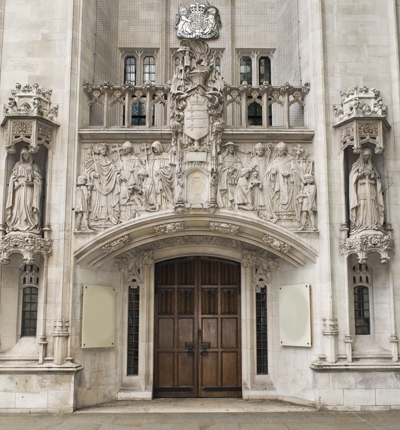
Protect given permission to intervene in judge's Supreme Court whistleblowing case
Whistleblowing charity Protect (formerly Public Concern at Work) have been given permission to intervene in the Supreme Court case between District Judge Claire Gilham and the MOJ which will be heard on 5 and 6 June 2019.
Posted on 04 June 2019
Leigh Day continues to represent Protect following their intervention in the same case when it was heard in the Court of Appeal in 2017. Protect will support arguments that judges should be entitled to whistleblowing protection and that to deprive judges of whistleblowing protection is incompatible with Article 10 and Article 14 of the European Convention on Human Rights.
As a District Judge, Claire Gilham said she raised concerns in 2013 about the stresses and dangers faced by those working in the courts and the effects on justice and due process as a result of an under-resourced system. She claims that after she raised these concerns no action was taken and she was subjected to bullying and the stress of greater workloads. She argues in her legal case that she suffered detriments as a result of blowing the whistle.
Currently most office holders, such as judges or non-executive directors, do not have the same legal protection as other workers if they suffer a detriment after having ‘blown the whistle’. However, police officers, who are also deemed to be office holders, do have whistleblowing protection under current legislation.
Head of Advocacy and Advice at Protect, Bob Matheson said:
“Protect intervenes in cases where there is a wider public policy issue at stake. Here the issue is who should have protection – and our view is that the law is too narrowly drawn if judges are excluded from protection when they identify concerns. We want the government to conduct a wider review of UK whistleblowing legislation, but until then, the Courts can shape the law. It is important that the UK continues to lead the way in whistleblowing protection. New EU whistleblowing legislation coming into force in 2021 will mean many more categories of whistleblowers are in scope, and it is vital that the UK doesn’t fall behind.”
Kiran Daurka, employment partner at Leigh Day who is representing Protect, said:
“As part of ensuring we have a fair and effective legal system it is important that those working at the heart of the administration of justice have adequate protections in place should they need to raise concerns. It is essential that the current legal framework for whistleblower protection is compatible with human rights legislation. Whistleblower protection is clearly intended to have wide application to support and encourage individuals to speak out about wrongdoing.”

